13 Best Herbal Tinctures For Gerd
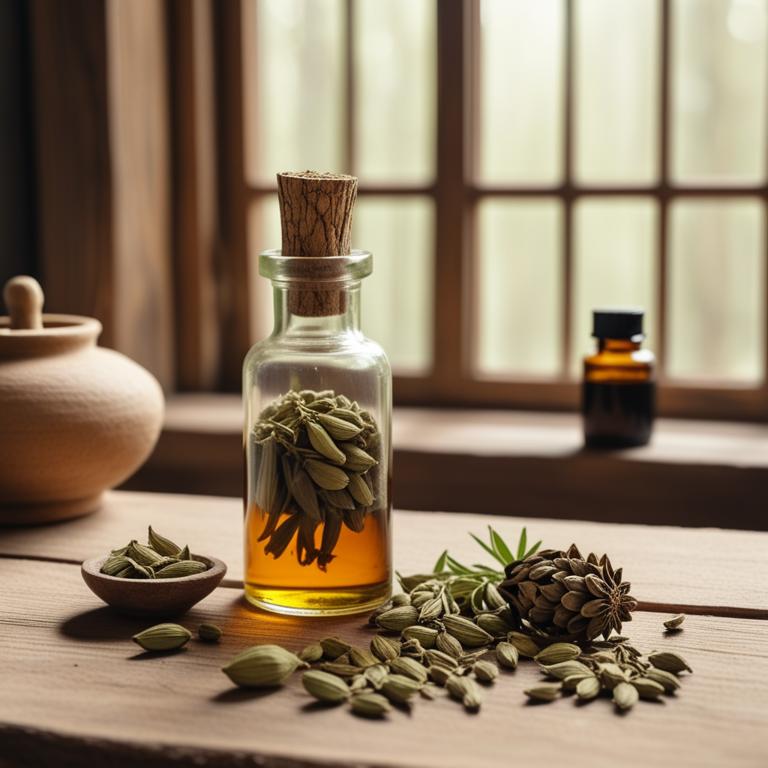
Herbal tinctures for Gerd are concentrated liquid extracts made from plants and herbs that are used to treat symptoms of gastroesophageal reflux disease (GERD), a condition characterized by the backflow of stomach acid into the esophagus.
These herbal remedies have numerous benefits, including soothing digestive issues, reducing inflammation, and calming the nervous system, which can help alleviate symptoms of GERD such as heartburn and acid reflux.
Examples of herbal tinctures commonly used to treat GERD include DGL (deglycyrrhizinated licorice) root, which forms a protective barrier in the esophagus to prevent acid damage, peppermint oil, which relaxes the muscles in the digestive tract, and chamomile, which reduces inflammation and promotes relaxation.
Other herbal tinctures that may be beneficial for GERD include ginger, which aids digestion and reduces nausea, slippery elm, which soothes and protects the mucous membranes, and marshmallow root, which reduces inflammation and forms a protective barrier in the digestive tract.
According to "Journal of alternative and complementary medicine (New York, N.Y.)", tinctures for GERD, specifically those derived from Myrtus communis and Cydonia oblonga, have shown a marked reduction in GERD symptoms comparable to omeprazole, a common medication used to treat GERD.
Below there's a list of the 13 best herbal tinctures for gerd.
- 1. Glycyrrhiza glabra tinctures
- 2. Zingiber officinale tinctures
- 3. Zingiber zerumbet tinctures
- 4. Rosmarinus officinalis tinctures
- 5. Foeniculum vulgare tinctures
- 6. Aloe ferox tinctures
- 7. Cinnamomum zeylanicum tinctures
- 8. Gardenia jasminoides tinctures
- 9. Cinnamomum camphora tinctures
- 10. Piper nigrum tinctures
- 11. Tamarix gallica tinctures
- 12. Lavandula angustifolia tinctures
- 13. Origanum majorana tinctures
Also you may be interested in...
TODAY'S FREE BOUNDLE
Herb Drying Checklist + Herbal Tea Shopping List + Medicinal Herbs Flashcards
Enter you best email address below to receive this bundle (3 product valued $19.95) for FREE + exclusive access to The Aphotecary Letter.
$19.95 -> $0.00
1. Glycyrrhiza glabra tinctures

Glycyrrhiza glabra tinctures, derived from the root of the licorice plant, have been used to treat Gastroesophageal Reflux Disease (GERD) due to their anti-inflammatory and soothing properties.
The tannins and saponins present in Glycyrrhiza glabra tinctures help to reduce inflammation in the esophagus and alleviate heartburn symptoms.
By inhibiting the production of stomach acid and enhancing the mucus production in the esophagus, Glycyrrhiza glabra tinctures provide relief from GERD symptoms, such as acid reflux and chest pain.
The benefits of using Glycyrrhiza glabra tinctures to treat GERD include reduced symptoms, improved quality of life, and a natural alternative to conventional medications.
2. Zingiber officinale tinctures

Zingiber officinale tinctures, derived from the rhizomes of the ginger plant, have been traditionally used to treat gastrointestinal issues, including Gastroesophageal Reflux Disease (GERD).
The properties of this herbal preparation, such as its anti-inflammatory and carminative effects, help to reduce inflammation and alleviate symptoms of acid reflux.
The bioactive constituents of Zingiber officinale, including gingerols and shogaols, exhibit potent anti-inflammatory and antioxidant activities that contribute to its therapeutic effects in treating GERD.
By reducing inflammation and alleviating symptoms, Zingiber officinale tinctures offer a natural and effective remedy for GERD, promoting digestive health and overall well-being.
3. Zingiber zerumbet tinctures
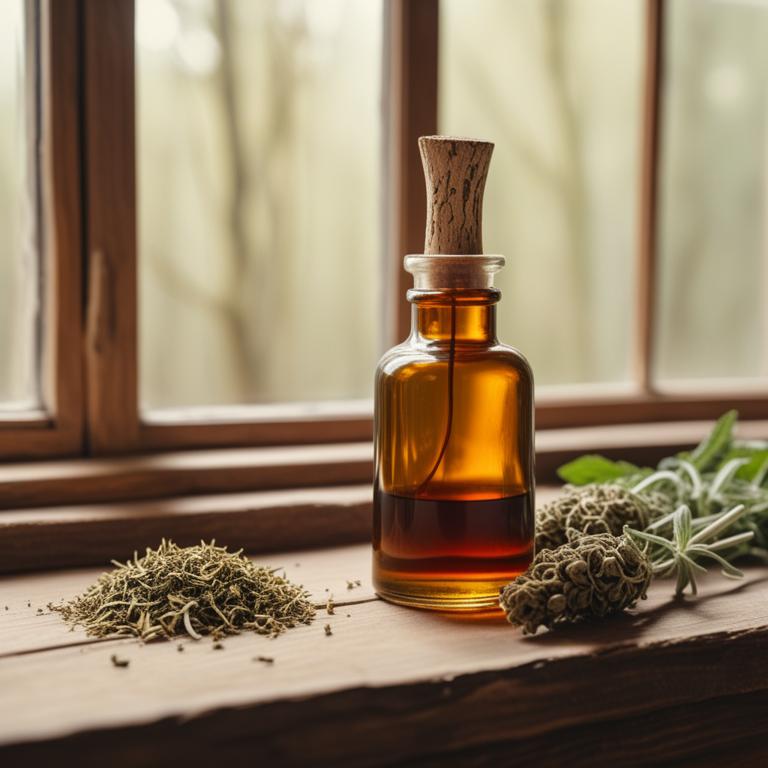
Zingiber zerumbet tinctures have been traditionally used to treat gastrointestinal issues, including Gastroesophageal Reflux Disease (GERD), due to their anti-inflammatory and carminative properties.
The herbal preparation helps to treat GERD by reducing inflammation in the esophagus and alleviating symptoms such as heartburn and acid reflux.
Bioactive constituents like gingerols and shogaols in Zingiber zerumbet tinctures exhibit potent anti-inflammatory and antioxidant activities, which contribute to their therapeutic effects on GERD.
Regular use of Zingiber zerumbet tinctures has been found to provide relief from GERD symptoms, promote digestive health, and reduce the risk of complications associated with this condition.
4. Rosmarinus officinalis tinctures
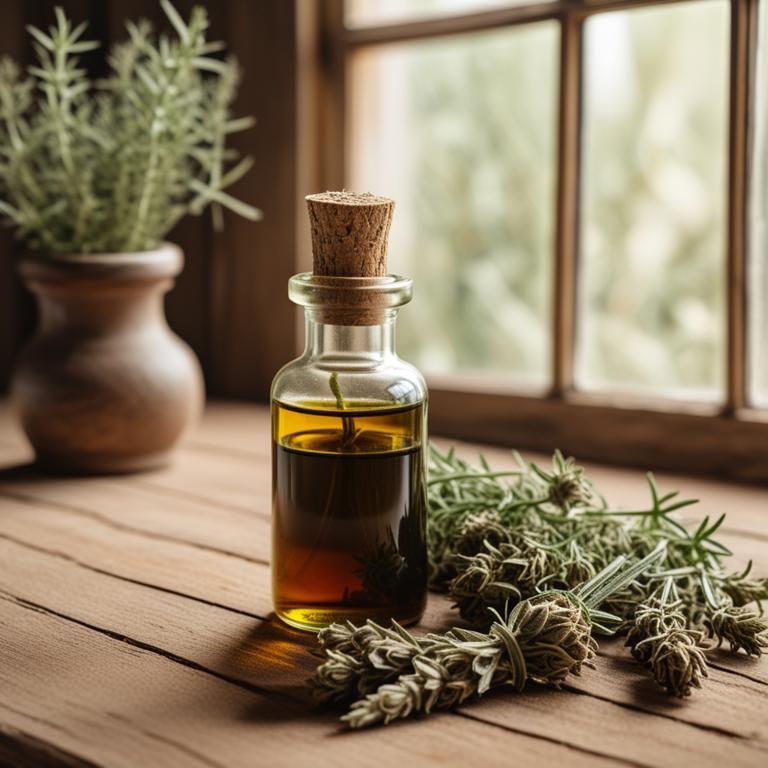
Rosmarinus officinalis tinctures, derived from the leaves of the rosemary plant, have been traditionally used to treat gastrointestinal issues, including Gerd, due to its anti-inflammatory and carminative properties.
The herbal preparation helps to treat this ailment by reducing symptoms of acid reflux and heartburn, providing relief from discomfort and pain.
The bioactive constituents of Rosmarinus officinalis, such as carnosic acid and ursolic acid, exhibit gastroprotective effects, which aid in healing the mucous membranes and reducing inflammation in the esophagus and stomach.
The benefits of using Rosmarinus officinalis tinctures to treat Gerd include reduced frequency and severity of acid reflux episodes, improved digestion, and enhanced overall gastrointestinal health.
5. Foeniculum vulgare tinctures
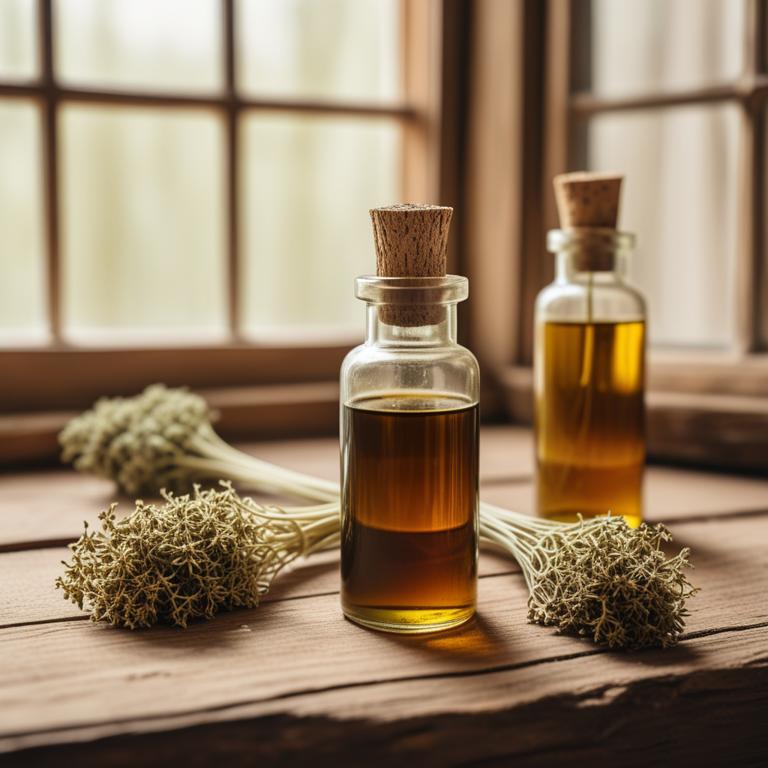
Foeniculum vulgare tinctures, derived from the seeds of the fennel plant, have been used for centuries to treat symptoms of gastroesophageal reflux disease (GERD).
The anise-flavored tincture helps to treat GERD by reducing inflammation in the esophagus and alleviating digestive discomfort, making it an effective natural remedy for heartburn and acid reflux.
The bioactive constituents of fennel tincture, including trans-anethole and fenchone, have been found to possess carminative and anti-inflammatory properties, which contribute to its therapeutic effects.
Regular use of fennel tinctures has been shown to provide significant relief from GERD symptoms, making it a popular natural alternative to conventional medications for managing heartburn and acid reflux.
Related Study
According to the provided study, Foeniculum vulgare tinctures may be beneficial for GERD (gastroesophageal reflux disease) due to its antispasmodic and spasmolytic effects, which can help alleviate smooth muscle contraction and cramping in the gastrointestinal tract.
6. Aloe ferox tinctures
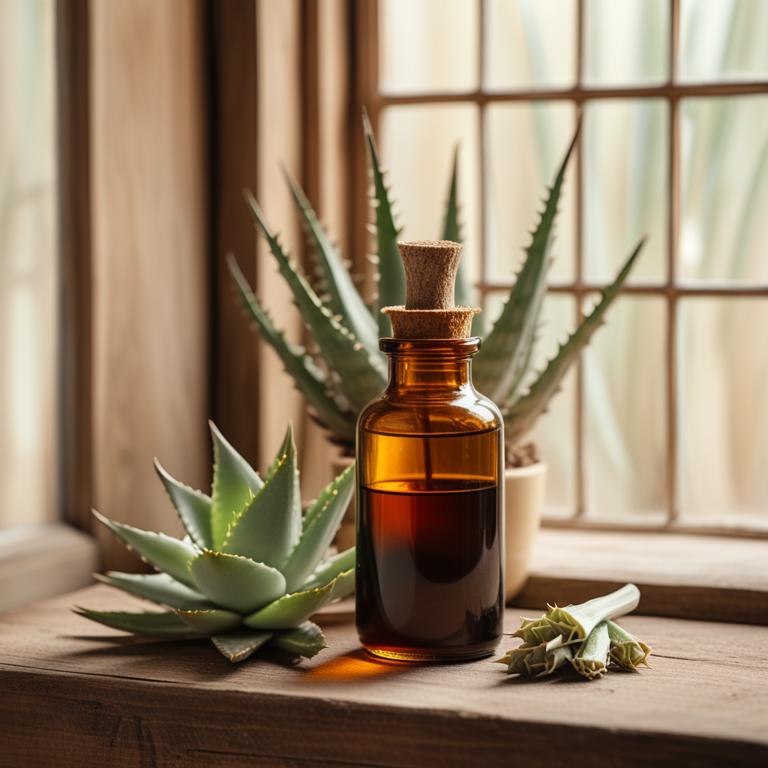
Aloe ferox tinctures have been traditionally used to treat Gastroesophageal Reflux Disease (GERD) due to their anti-inflammatory and soothing properties.
The tannins and anthraquinones present in Aloe ferox help to reduce inflammation in the esophagus and stomach, thereby alleviating the symptoms of GERD.
The bioactive constituents, including aloin, aloe-emodin, and aloe-echinocystic acid, work together to relax the lower esophageal sphincter and reduce acid production in the stomach, providing relief from heartburn and discomfort.
By using Aloe ferox tinctures, individuals can benefit from a natural and effective treatment for GERD, promoting healing and reducing the risk of complications associated with the condition.
7. Cinnamomum zeylanicum tinctures
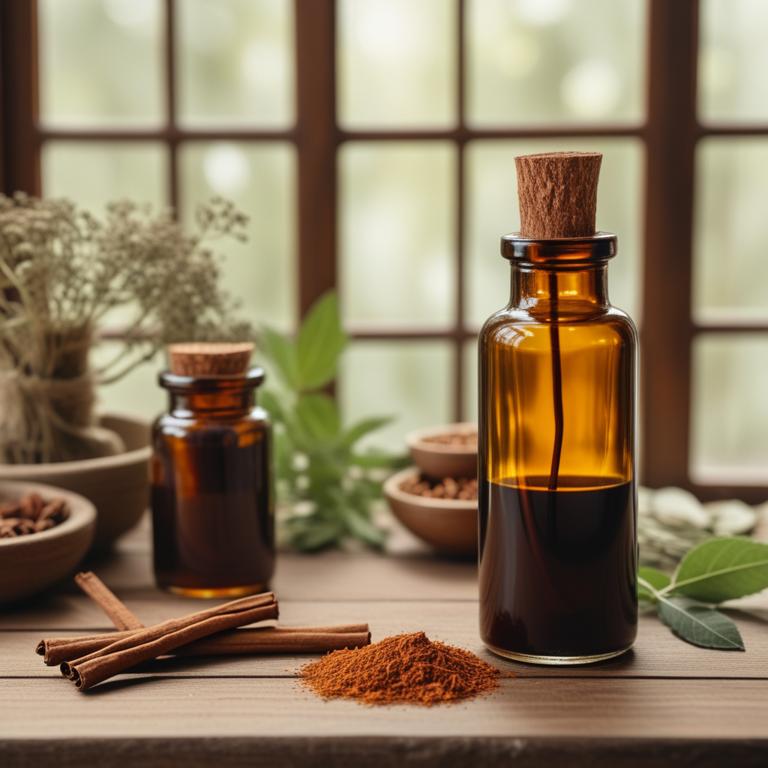
Cinnamomum zeylanicum tinctures have been traditionally used to treat Gastroesophageal Reflux Disease (GERD) due to their anti-inflammatory, antioxidant, and carminative properties.
The bioactive constituents, including cinnamaldehyde, eugenol, and linalool, help to reduce inflammation in the esophagus, alleviate symptoms of heartburn and acid reflux, and promote digestive health.
By reducing inflammation and improving digestion, Cinnamomum zeylanicum tinctures can help to alleviate the symptoms of GERD, such as chest pain and difficulty swallowing.
The benefits of using Cinnamomum zeylanicum tinctures to treat GERD include reduced frequency and severity of symptoms, improved quality of life, and a reduced reliance on pharmaceutical medications.
8. Gardenia jasminoides tinctures
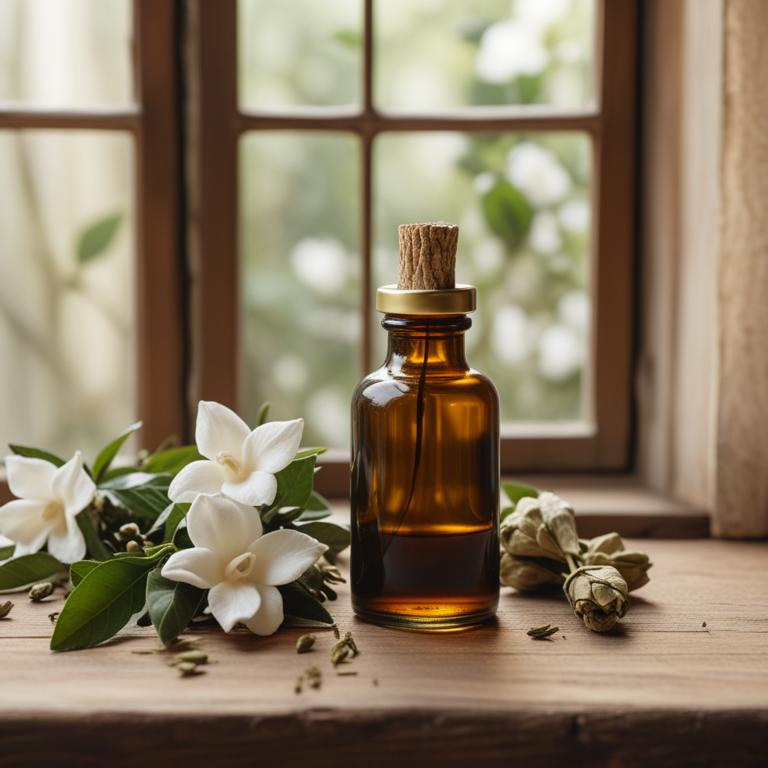
Gardenia jasminoides tinctures have been traditionally used to treat the gastrointestinal reflux disease (GERD) ailment, with its properties of reducing inflammation and relaxing the muscles in the digestive tract helping to alleviate symptoms.
The bioactive constituents of Gardenia jasminoides tinctures, including flavonoids, alkaloids, and volatile oils, have been found to have a calming effect on the esophageal sphincter, preventing stomach acid from flowing back up into the esophagus.
This herbal preparation helps to treat GERD by reducing the frequency and severity of acid reflux episodes, as well as providing relief from symptoms such as heartburn and discomfort.
The benefits of using Gardenia jasminoides tinctures to treat GERD include improved digestion, reduced inflammation, and a decrease in the risk of complications associated with chronic acid reflux.
9. Cinnamomum camphora tinctures
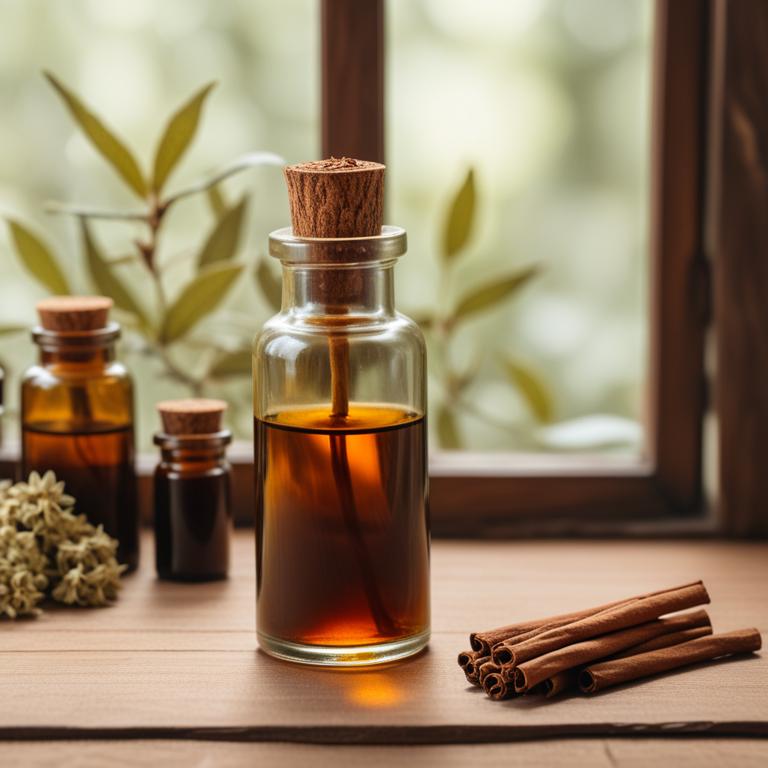
Cinnamomum camphora tinctures have been used traditionally to treat gastrointestinal issues, including gastroesophageal reflux disease (GERD).
The properties of this herbal preparation that help to treat GERD include its ability to reduce inflammation and improve digestion, which helps to alleviate symptoms such as heartburn and acid reflux.
The bioactive constituents of Cinnamomum camphora tinctures, including camphor and borneol, have been shown to have anti-inflammatory and antispasmodic properties, which help to soothe the digestive tract and reduce symptoms of GERD.
The benefits of using Cinnamomum camphora tinctures to treat GERD include reduced symptoms of heartburn and acid reflux, improved digestion, and a decrease in inflammation in the digestive tract.
10. Piper nigrum tinctures
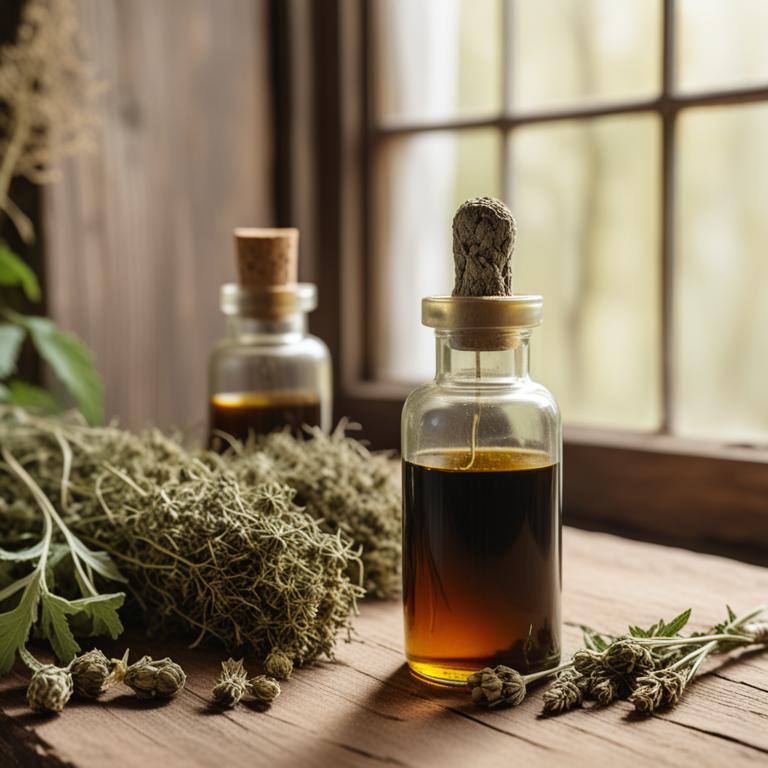
Piper nigrum tinctures have been traditionally used to treat Gastroesophageal Reflux Disease (GERD) due to their soothing and anti-inflammatory properties.
The bioactive constituents of Piper nigrum, including gingerol and shogaol, help to reduce inflammation in the esophagus and alleviate symptoms associated with GERD.
These bioactive compounds also aid in relaxing the muscles in the lower esophageal sphincter, preventing stomach acid from flowing back up into the esophagus.
Regular use of Piper nigrum tinctures may help alleviate GERD symptoms, promote digestion, and reduce discomfort associated with this condition.
11. Tamarix gallica tinctures

Tamarix gallica tinctures have been studied for their potential in treating Gastroesophageal Reflux Disease (GERD) due to their soothing and protective properties on the digestive tract.
The bioactive constituents present in Tamarix gallica, such as flavonoids and phenolic acids, are believed to help alleviate symptoms of GERD by reducing inflammation and relaxing the lower esophageal sphincter.
The use of Tamarix gallica tinctures may help to calm heartburn and acid reflux by reducing the production of stomach acid and improving digestion.
By incorporating Tamarix gallica tinctures into one's treatment plan, individuals may experience relief from GERD symptoms, improved digestion, and enhanced overall gut health.
12. Lavandula angustifolia tinctures
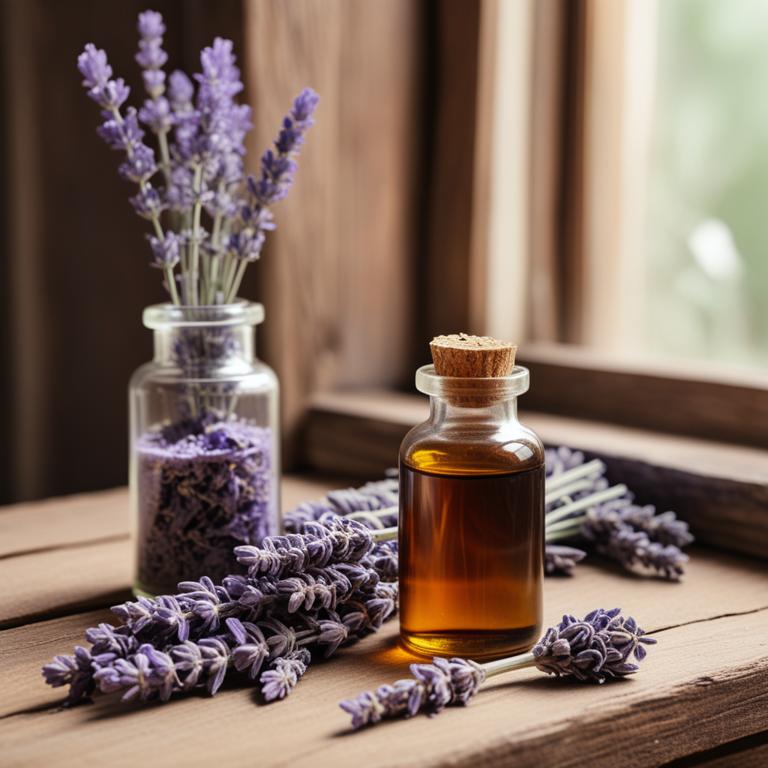
Lavandula angustifolia tinctures have been traditionally used to treat the gastrointestinal ailment known as gastroesophageal reflux disease (GERD), due to their calming and anti-inflammatory properties.
This herbal preparation helps to treat GERD by soothing the digestive tract, reducing inflammation, and alleviating symptoms of heartburn and acid reflux.
The bioactive constituents of Lavandula angustifolia, including linalool and linalyl acetate, are responsible for its therapeutic effects, as they have been shown to relax the muscles of the digestive tract and reduce inflammation.
The benefits of using Lavandula angustifolia tinctures to treat GERD include reduced symptoms, improved digestion, and a decrease in the risk of complications associated with this condition.
13. Origanum majorana tinctures

Origanum majorana tinctures have been traditionally used to treat Gastroesophageal Reflux Disease (GERD) due to their soothing and anti-inflammatory properties, which help to reduce inflammation and alleviate symptoms associated with the condition.
The herbal preparation's ability to relax the lower esophageal sphincter and reduce acid production in the stomach also contributes to its effectiveness in treating GERD.
The bioactive constituents of Origanum majorana, including carvacrol and linalool, possess anti-inflammatory and antioxidant properties that help to protect the esophageal lining and prevent further irritation.
Regular use of Origanum majorana tinctures has been shown to provide relief from GERD symptoms, including heartburn and acid reflux, and promote overall digestive health.
Related Study
According to "Oxidative medicine and cellular longevity", Origanum majorana tinctures have been found to possess antispasmodic activity, which may help in relieving gastrointestinal diseases including GERD symptoms such as contraction and cramping of smooth muscles.